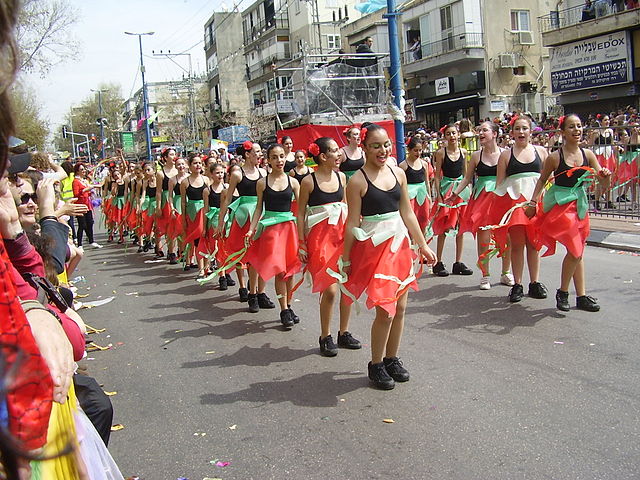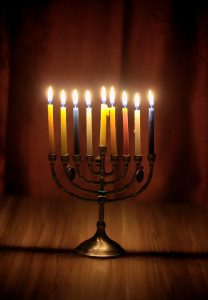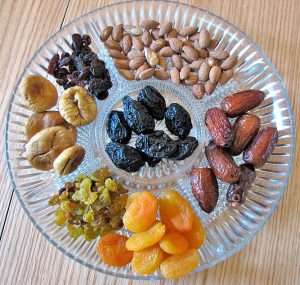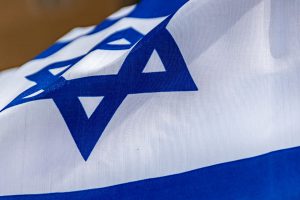Minor Jewish Festivals in Israel
In addition to the Major Festivals in the Hebrew calendar there are a few other minor festivals of which the tourist should be aware of. In the article about the major festivals, there is an overview of the Hebrew calendar; in short, however, the Gregorian and Hebrew Calendars are not in absolute synchronization – so whilst each festival has a precise Hebrew date, the Gregorian date can vary over a few weeks from year to year. Please also see our companion Guide to the Shabbat.
Like all Festivals they all commence just before sunset on the previous evening.
Purim
Purim is celebrated in late February – late March exactly one month before Pesach (Passover). It is a short one day festival celebrated with much happiness. You can normally see children and many adults in fancy dress. One of the anomalies of this festival is that it is celebrated in Jerusalem (and a handful of other towns) exactly 24 hours after the majority of the country.
Purim marks the successful over-turning of Haman’s evil decree to destroy the Jewish people in the 127 provinces of King Ahasearus at the end of the Babylonian Exile. The heroine is Queen Esther who was helped and advised by her uncle Mordechai. The name comes from the word Purim meaning lots; as Haman selected the planned day for the massacre using lots. Purim in the Jewish calendar symbolizes physical survival as a people against ruthless enemies.
 Chanuka
Chanuka
Chanuka (or Hanukkah) is celebrated in December and very occasionally it can coincide with Christmas although the origins are very different. Chanuka lasts for eight days and on each evening a candelabra (Menorah) is lit, with one flame on the first night, two on the second through to eight on the last evening. Traditionally, presents are exchanged and everybody eats huge amounts of oily foods, especially doughnuts.
Chanuka celebrates the successful Hasmonean Revolt against the Greeks who were trying to destroy the traditional Jewish religious culture and replace it with their own. Chanuka celebrates the re-dedication of the Temple to its rightful service. The priests only managed to find a single day’s worth of olive oil for the holy lights on the Menorah. By a miracle the supply lasted for a full eight days – the time needed to prepare more oil. So each day we add a little more light in our homes.
The Impact of Purim & Chanuka on tourists
On both Purim and Chanuka life pretty much goes on as normal – it is obvious that it is holiday time, especially for the children, but for the most part life goes on in parallel to the holiday. As a tourist there is basically no impact – although you are welcome to get dressed up and to join the feasts.
Tisha B’Av
Tisha B’Av occurs in late July or August. It is a single day of national mourning and fasting marking the destruction of the Temples in ancient times and other misfortunes to have befallen the Jewish people over time. It is not widely observed outside the religious community. It is noteworthy to the tourist as on the evening of Tisha B’Av places of entertainment and food are generally closed (although there will be food in your hotel).
Asarah B’Tevet – Tenth of Tevet
It is the tenth day of the Jewish month of Tevet, and is a fast day. It is one of the minor fasts observed from dawn to nightfall. The fasting is the Jews’ way of mourning of the siege of Jerusalem by the Babylonian emperor Nebuchadnezzar II, which ultimately ended with the destruction of Solomon’s Temple and the conquest of the Kingdom of Judah.
This day is observed as the day of fasting, mourning and repentance. The faithful abstain from eating and drinking from daybreak to nightfall. Because it is a minor fast day, only ill people as well as pregnant and nursing mothers are exempted from fasting. It is not a public holiday, so businesses are open in their regular office hours.
 Tu BiShvat
Tu BiShvat
Every 15th of Shevat in the Hebrew calendar, the Jews celebrate this holiday, Tu BiShvat. It is also called “Rosh HaShanah L’llanot,” which means “The Year of the Trees.” Thus, Tu BiShvat is the Israeli version of Arbor Day. It is also celebrated as “ecological awareness day” in the country.
People mark this day by planting trees and by eating symbolic fruits and nuts, which are usually accompanied by wine or grape juice. They often share this sweet and fruity meal with their families and friends. Some households pickle or candy the local citrus fruit etrog, which is also used at ceremonies during Sukkot.
There are also several events that take place days or even weeks leading up to the holiday itself, so tourists should take advantage of it by checking out fun outdoor activities and events.
Modern Festival Days
Events in the modern period; have added a few other notable dates to the Hebrew Calendar.
Holocaust Memorial Day – Yom HaShoah
Holocaust Memorial Day or Yom HaShoah is marked a few days after Pesach (Passover). It is a day of national mourning. Cafes and other entertainment facilities are closed in the evening (although food will be available in your hotel) and at 10 o’clock the following morning there is a two-minute silence – marked by air raid sirens nationwide. When the siren sounds, people stand still wherever they are – even on the main highways. There are a series of state ceremonies at Yad VaShem Holocaust Museum and at other locations.
Fallen Soldiers Memorial Day – Yom HaZikaron
The Fallen Soldiers Memorial Day or Yom HaZikaron is marked exactly one week after Holocaust Memorial Day and commemorates those who have fallen in defense of the State of Israel or in terrorist attacks. The format is similar to Holocaust Memorial Day except that there are minutes of silence at 8 o’clock in the evening and 11 o’clock the following day. Again everybody stops where they are to pay their respects. There is a state ceremony at the Western Wall in the evening and at the military cemeteries nationwide during the day.
 Israel Independence Day – Yom Haatzmaut
Israel Independence Day – Yom Haatzmaut
Israel Independence Day or Yom Haatzmaut is marked the day after Fallen Soldiers Memorial Day and coincides with the Hebrew date when Israel was established in 1948. At the evening between the two there is a state ceremony and parade in Jerusalem and every town celebrates with fireworks, street parties and entertainment. Many people dedicate special holiday prayers to mark the occasion.
Independence Day itself is a national holiday. Many head out of town for hikes and rambles and just about everybody celebrates with a mangal (barbecue). Many host the barbecue in their homes, but most people prefer to cook close to nature – even if nature means a narrow strip of grass on the divider on a highway! Expect serious traffic congestion in some parts of the country.
What are the impact of Holocaust,, Memorial & Independence Day on Tourists?
These three days Holocaust Memorial, Fallen Soldier Memorial and Independence Day should not inconvenience the tourist unduly. It is considered very bad form not to respect the various minutes of silence, but that you will sense immediately. Certainly, feel free to learn more about these painful aspects of history and to dance and join the independence celebrations. These are very important days in modern Israeli society and it is a positive experience to take part and helps you to understand Israel a bit better.
From Holocaust to Independence
The eight day period from Holocaust Day to Independence Day symbolizes the tremendous destruction of the Jewish People during the Holocaust, and the sacrifice in lives and determination that resulted in the establishment of Israel just three years after the end of the Second World War. It also marks the on going sacrifice needed each year to ensure the survival of Israel. The dramatic change from mourning to the celebration of Independence Day is very poignant in Israel where all too many people have personal experience of one or both of the Holocaust and wars. However, it certainly underlines the direct correlation between national sacrifice and national success.
Jerusalem Day
Jerusalem Day (late May – early June) marks the reunification of Jerusalem during the Six Day War and the opening of the Old City to freedom of pilgrimage. Most of the events take place in Jerusalem; with some street celebrations and many take the opportunity to visit the Old City. It is a special day and if you are lucky enough to be in Jerusalem take the time to join in and understand what a united Jerusalem means to Israel.
The Impact of the Festivals
Each festival has its own unique method of celebration. There are some general principles that apply to the festivals. The festivals are considered Holy Days that should be dedicated to religious observance and to celebration in the home and with the family. In general they have similar sets of laws to the Sabbath (Shabbat). So religious Jews perform no work, use time switches to control their electricity, and do not travel (apart from walking.) The major difference to the Shabbat is that the laws regarding cooking are a little more relaxed although in a hotel this will not be immediately obvious.
Not all Israelis are observant – so in many contexts the impact of the festival will not be immediately obvious to the tourist. Businesses are closed, some aspects of the hotels are changed, many Israelis will celebrate with family events, but you will see many people travelling to their families and many travelling to popular locations to spend the day enjoying Israel.

 Chanuka
Chanuka Tu BiShvat
Tu BiShvat Israel Independence Day – Yom Haatzmaut
Israel Independence Day – Yom Haatzmaut